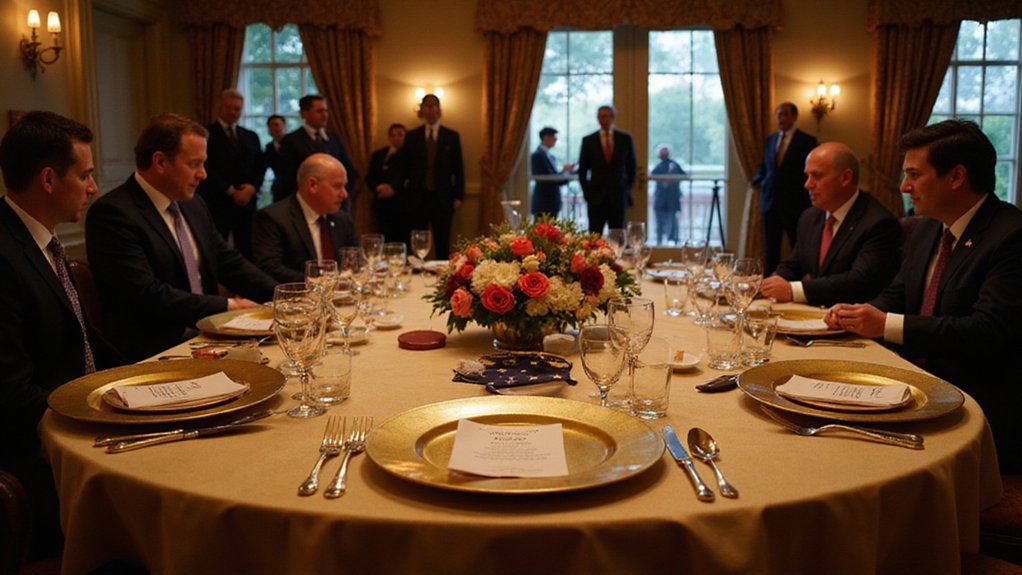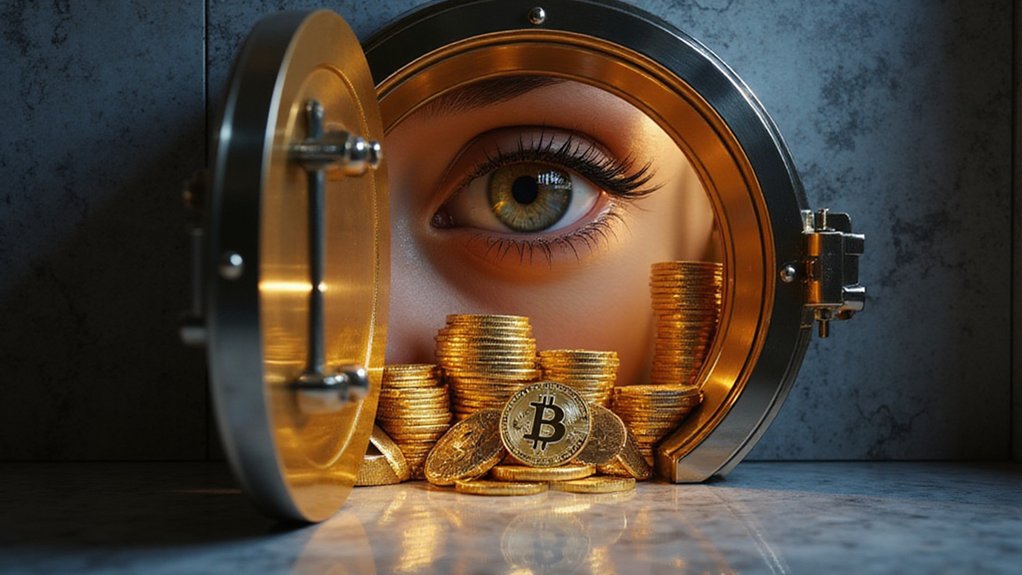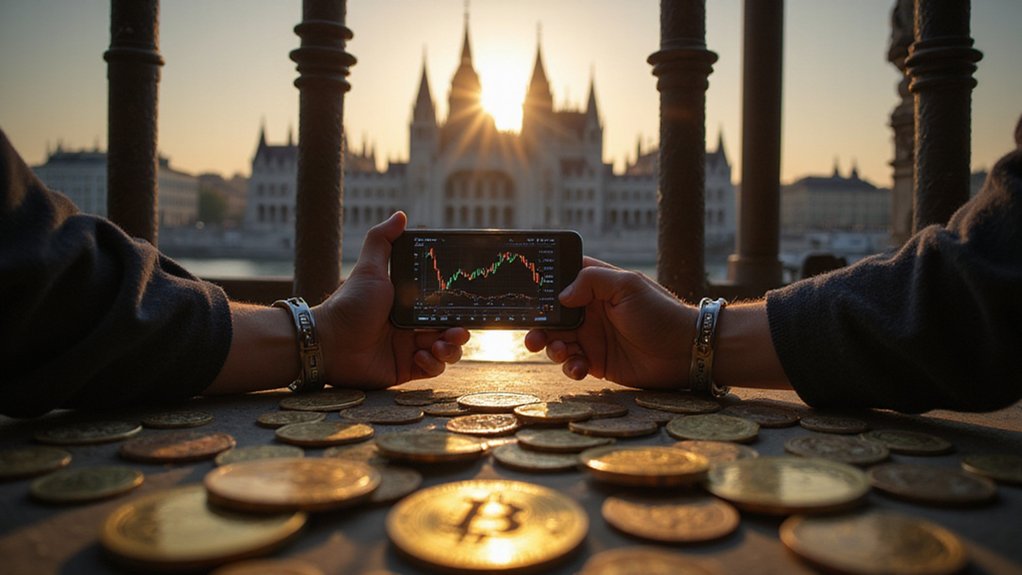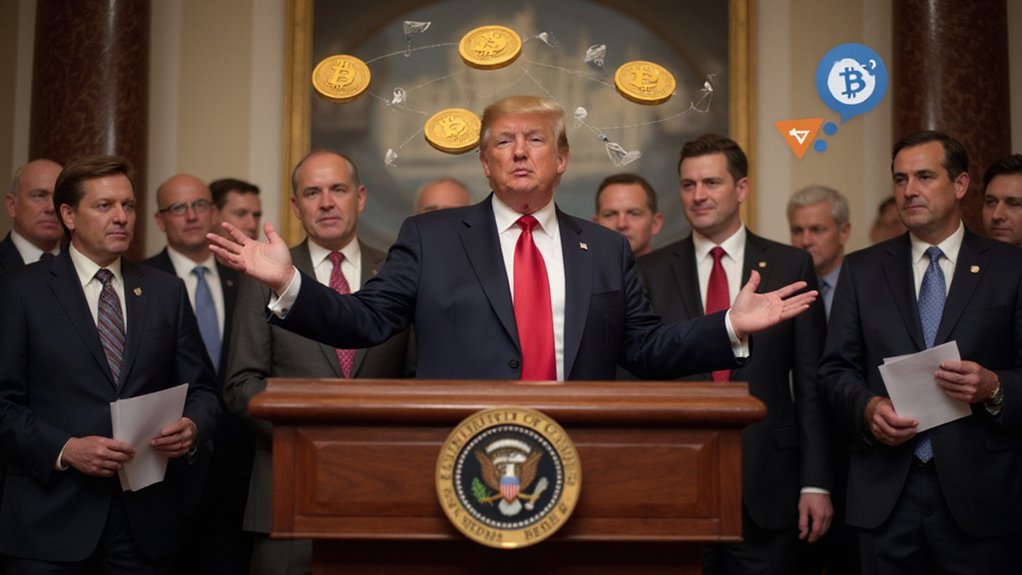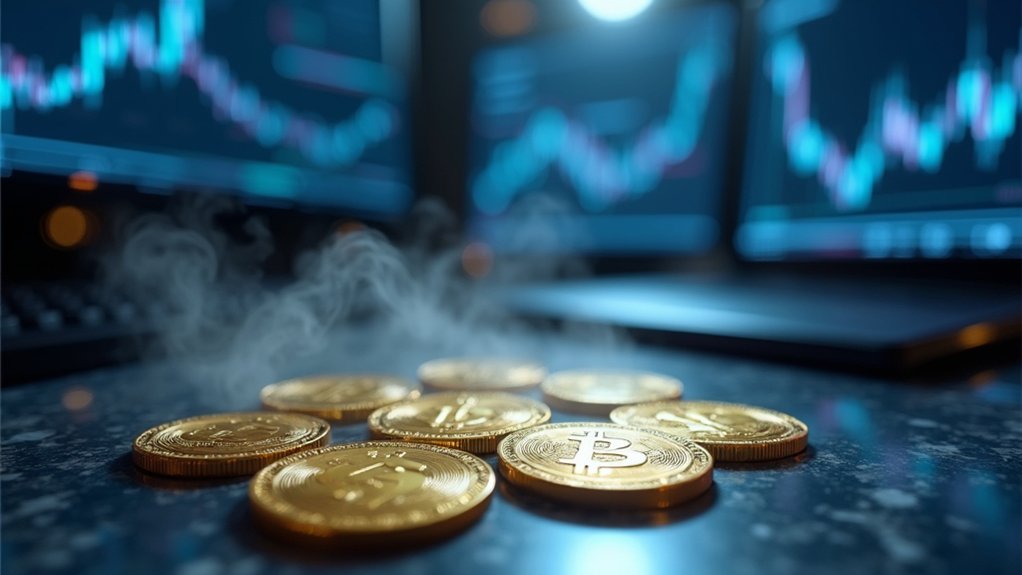How exactly does one purchase a seat at the presidential table?
According to recent developments, the price tag hovers around $148 million—invested in a cryptocurrency bearing Donald Trump’s imprimatur.
The forthcoming dinner auction, scheduled for May 22, 2025, at Trump’s private golf sanctuary in Sterling, Virginia, has attracted substantial international capital, raising eyebrows among political transparency advocates.
The event, marketed with the tantalizing promise of an “EXCLUSIVEITATION the world,” offers its top 25 investors a private VIP reception and personal tour with the former president.
This quid pro quo arrangement has drawn scrutiny as financial analytics reveal that the leading wallet—aptly named ‘SUN’—contains nearly $18.5 million in Trump’s meme coin and belongs to HTX, a Seychelles-based cryptocurrency exchange.
The intersection of international finance and political access presents a regulatory quagmire.
Justin Sun, a Chinese entrepreneur who serves on HTX’s board, has established financial connections with Trump that persist despite Sun’s previous SEC entanglements (which were conveniently resolved in February 2025).
The concentration of foreign capital—particularly from Singapore and Hong Kong firms—introduces legitimate questions about potential channels of influence.
What remains particularly troubling is the transactional transparency of the arrangement: invest substantially in Trump’s cryptocurrency venture and receive commensurate political access.
The commodification of presidential proximity operates within the lacunae of campaign finance legislation, which has yet to adequately address cryptocurrency’s role in political fundraising.
The public discourse surrounding this dinner auction reflects broader concerns about the monetization of political influence. Senator Chris Murphy has publicly condemned this approach as the most corrupt act by a president in recent memory.
When eight-figure investments translate directly to “ultra-exclusive” access, the democratic principle of equal representation faces an existential challenge.
While technically legal, the ethical implications remain profound.
Trump’s meme coin follows in the footsteps of established cryptocurrencies like Dogecoin and Shiba Inu, which gained popularity through strong community support and internet meme culture.
As financial analysts track the substantial holdings ($147,586,796.41 among the top 220 wallets), the question remains whether such unvarnished exchanging of capital for access represents a troubling evolution in American politics or merely makes explicit what has long operated in the shadows.
